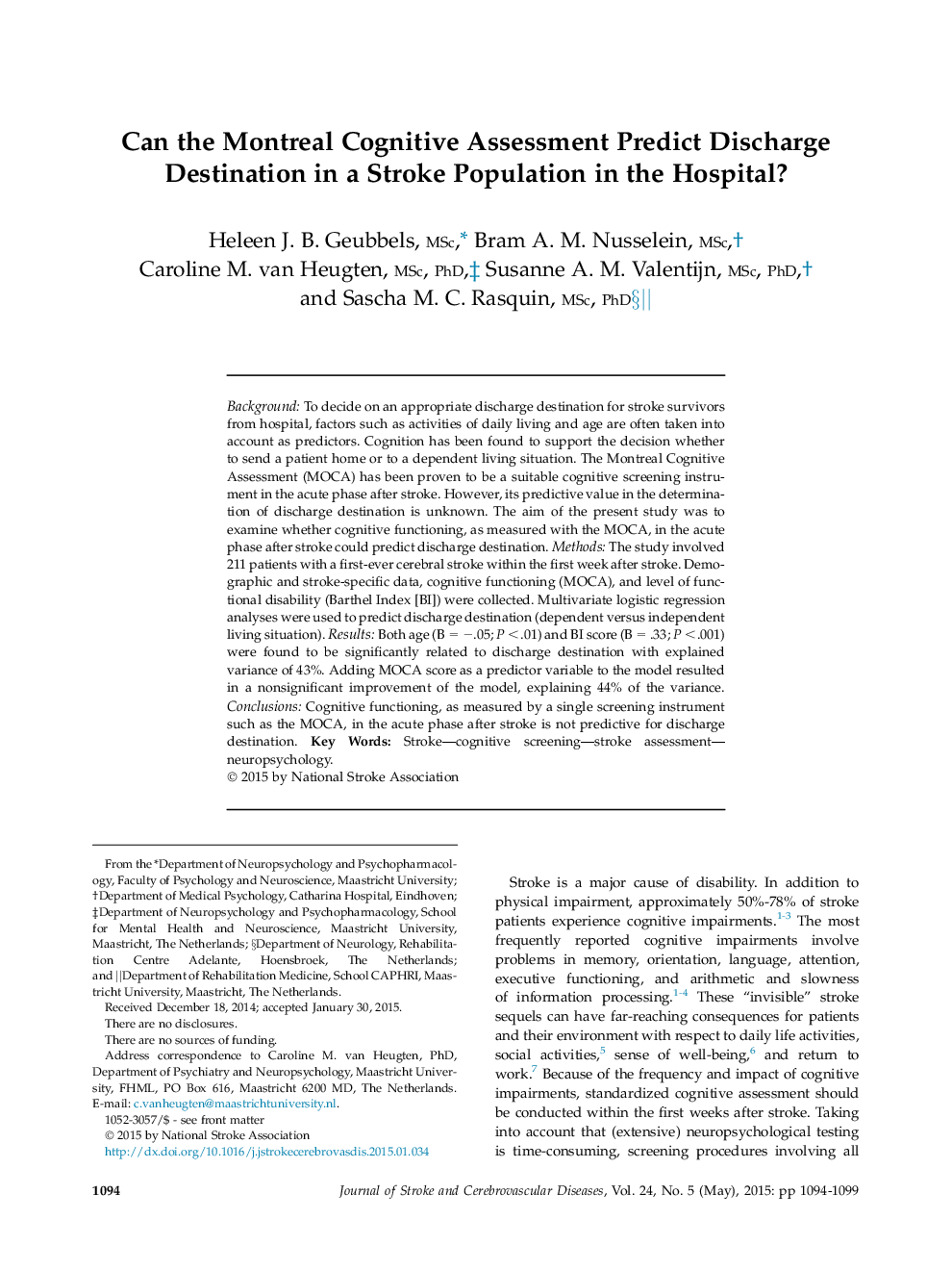| Article ID | Journal | Published Year | Pages | File Type |
|---|---|---|---|---|
| 2703917 | Journal of Stroke and Cerebrovascular Diseases | 2015 | 6 Pages |
BackgroundTo decide on an appropriate discharge destination for stroke survivors from hospital, factors such as activities of daily living and age are often taken into account as predictors. Cognition has been found to support the decision whether to send a patient home or to a dependent living situation. The Montreal Cognitive Assessment (MOCA) has been proven to be a suitable cognitive screening instrument in the acute phase after stroke. However, its predictive value in the determination of discharge destination is unknown. The aim of the present study was to examine whether cognitive functioning, as measured with the MOCA, in the acute phase after stroke could predict discharge destination.MethodsThe study involved 211 patients with a first-ever cerebral stroke within the first week after stroke. Demographic and stroke-specific data, cognitive functioning (MOCA), and level of functional disability (Barthel Index [BI]) were collected. Multivariate logistic regression analyses were used to predict discharge destination (dependent versus independent living situation).ResultsBoth age (B = −.05; P < .01) and BI score (B = .33; P < .001) were found to be significantly related to discharge destination with explained variance of 43%. Adding MOCA score as a predictor variable to the model resulted in a nonsignificant improvement of the model, explaining 44% of the variance.ConclusionsCognitive functioning, as measured by a single screening instrument such as the MOCA, in the acute phase after stroke is not predictive for discharge destination.
